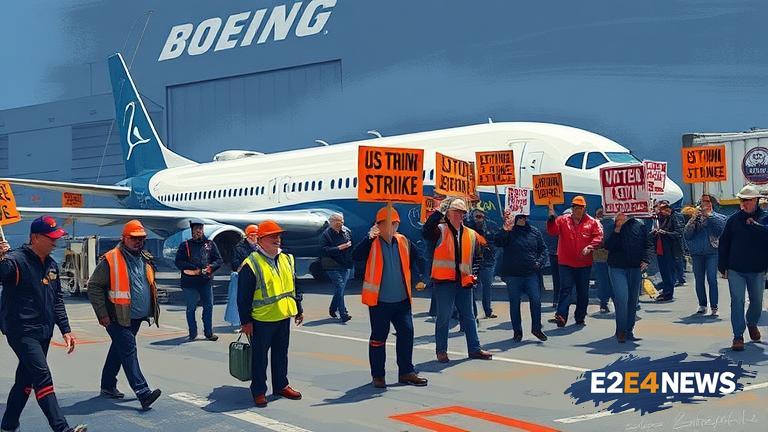In a significant development, around 3000 union workers employed by Boeing, the renowned American aerospace company, have embarked on a strike in the United States. The strike, which commenced recently, is a result of the workers’ dissatisfaction with the contract negotiations between the union and the company. The workers, who are members of the International Association of Machinists and Aerospace Workers (IAM), are seeking improved wages, benefits, and working conditions. The union has expressed its disappointment with Boeing’s proposals, stating that they do not adequately address the workers’ concerns. The strike is expected to have a significant impact on Boeing’s operations, potentially leading to delays in aircraft production and delivery. The company has stated that it is committed to reaching a mutually beneficial agreement with the union, but the negotiations have been ongoing for several months without a resolution. The strike is not only affecting Boeing’s operations but also having a ripple effect on the entire aerospace industry. The workers are determined to fight for their rights and are receiving support from other unions and labor organizations. The strike has also sparked concerns about the potential impact on the US economy, as Boeing is one of the country’s largest exporters. The company’s supply chain is also likely to be affected, with many smaller businesses relying on Boeing for contracts and orders. The strike is a reminder of the ongoing struggles faced by workers in the US, who are seeking better pay, benefits, and working conditions. The union has stated that it is willing to negotiate, but Boeing must be willing to meet the workers’ demands. The strike is also highlighting the importance of labor unions in protecting workers’ rights and promoting fair labor practices. The US government has been urged to intervene and help resolve the dispute, but so far, no official statement has been made. The strike is ongoing, with the workers showing no signs of backing down. The situation is being closely monitored by industry experts, who are warning of potential long-term consequences for Boeing and the aerospace industry as a whole. The strike is also affecting Boeing’s reputation, with many customers and investors expressing concerns about the company’s ability to deliver on its commitments. The workers are using social media to raise awareness about their cause and are receiving support from many online platforms. The strike is a significant development in the US labor landscape and is likely to have far-reaching consequences for workers, companies, and the economy. The situation is complex, with many factors at play, and a resolution is not expected anytime soon. The workers are determined to fight for their rights, and the strike is likely to continue until their demands are met. The US labor market is closely watching the developments, as the outcome of the strike could have significant implications for workers’ rights and labor laws. The strike is also highlighting the need for better labor laws and regulations to protect workers’ rights and promote fair labor practices. The situation is being closely monitored by human rights organizations, who are urging Boeing to negotiate with the union and meet the workers’ demands. The strike is a reminder of the importance of collective bargaining and the need for companies to engage with workers and unions to resolve disputes and promote fair labor practices.





